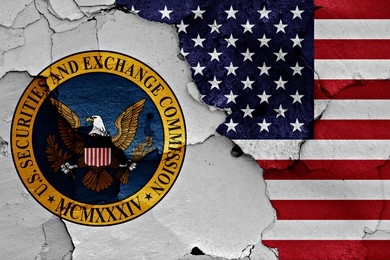US Securities and Exchange Commission (SEC) lawyers have issued an apology to a judge for misrepresenting facts in a case involving a crypto firm.
The SEC lawyers expressed deep regret and acknowledged their errors in securing a restraining order and asset freeze against Digital Licensing Inc., also known as DEBT Box.
Regret And Corrective Actions In Crypto Lawsuit
According to a Fortune Magazine report, following the judge’s order to explain the reasons behind their missteps, the SEC lawyers submitted a filing to the US District Court of Utah.
In the filing, they stated that the Commission deeply regrets the issued orders and has taken measures to address the situation, including mandatory training for the staff members involved in the crypto investigation.
SEC Enforcement Chief Gurbir Grewal emphasized the agency’s appreciation for the responsibility entrusted to them when enforcing federal securities laws and admitted that the division fell short of the expected standards in this particular case.
The SEC’s legal rebuke stemmed from a lawsuit filed in July against the crypto fIrm DEBT Box, accusing the company of defrauding investors of approximately $50 million.
As reported by Bitcoinist, the SEC sought a temporary restraining order and asset freeze, alleging that the defendants were planning to relocate operations overseas to evade regulatory oversight.
The agency filed an ex parte application to prevent DEBT Box from emptying its bank accounts before the SEC could take action. However, after the judge approved the order, the defendants challenged the SEC’s representations, pointing out factual inaccuracies.
For instance, it was revealed that some of the project’s bank accounts had been closed by the bank itself, not by the project, and that the company had already transferred most of its operations months before the lawsuit, rather than immediately before.
In response to the judge’s concerns about misleading representations, the SEC lawyers filed a detailed 27-page response. The SEC acknowledged their shortcomings and emphasized the need for accuracy and clarity, stating that the Commission cannot let its eagerness to combat fraud compromise its duty to provide accurate information.
While the judge mentioned the possibility of imposing sanctions on the agency, the SEC lawyers argued that mandatory training for its employees would be sufficient, as they did not engage in deliberate misconduct.
The SEC also appointed a new team of lawyers to assess the missteps and concluded that the staff did not intend to mislead the court but made errors due to the urgency in preparing the emergency relief application.
Lessons Learned?
Additionally, it was revealed that SEC employees, while conducting a “secret investigation”, interacted with defendants’ social media pages, inadvertently raising suspicions. The SEC staff believed their actions could potentially alert the defendants to the investigation.
The filing concluded by stating that the Commission has identified the errors and shortcomings and is taking steps to rectify them.
The case has drawn attention within the crypto industry, with some viewing it as an example of the SEC’s overly aggressive approach towards the sector.
As SEC Chairperson Gary Gensler intensifies enforcement actions against crypto firms, this incident highlights the importance of maintaining accuracy and transparency while combating alleged fraud.
Featured image from Shutterstock, chart from TradingView.com








